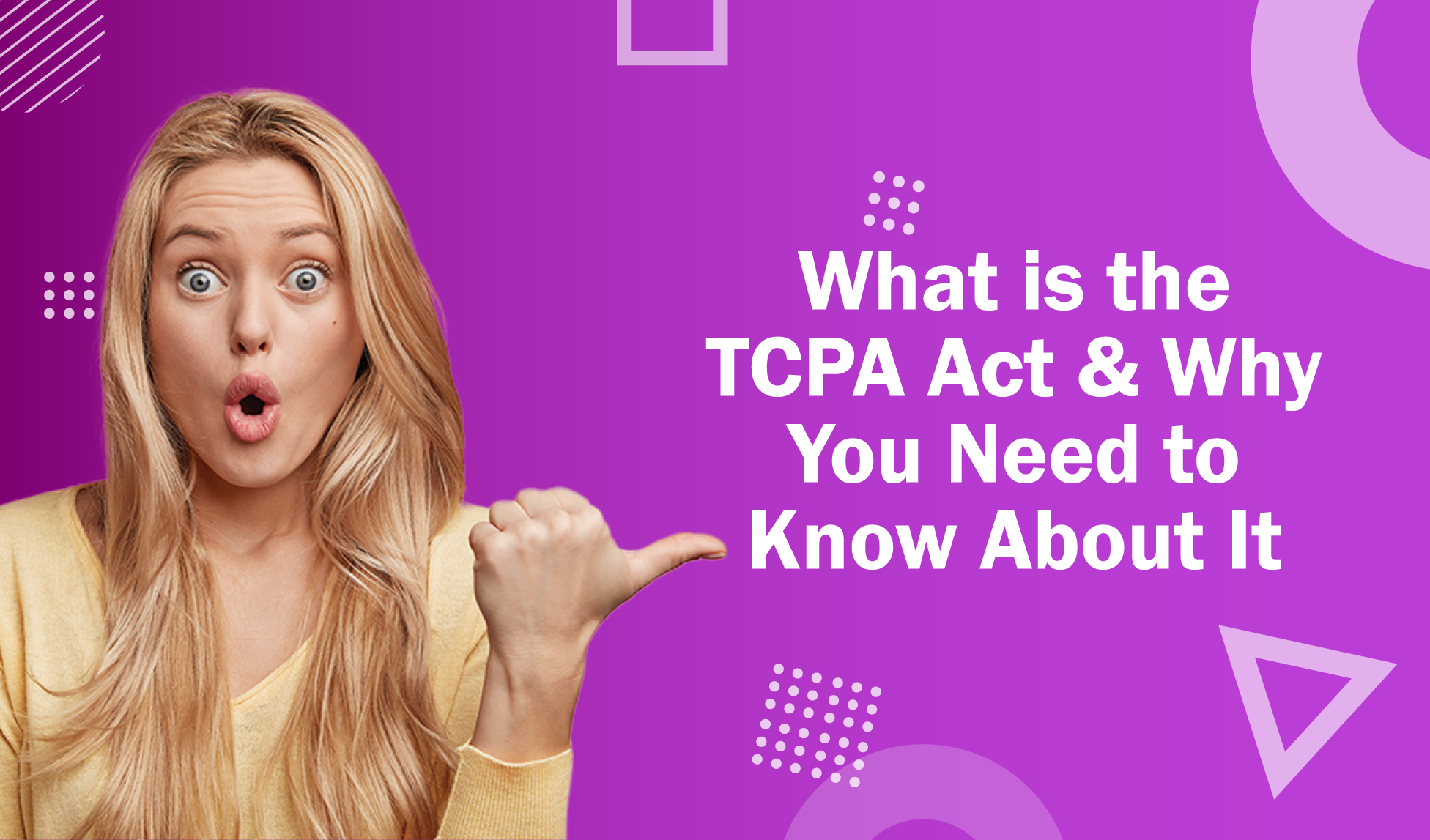**This is a description of the TCPA Act and not Legal Advice**
The TCPA, or the Telephone Consumer Protection Act, is a federal law in the United States that was enacted in 1991. The primary aim of the TCPA is to restrict telemarketing calls and the use of automatic telephone dialing systems and artificial or prerecorded voice messages. It also applies to unsolicited faxes and text messages.
Key aspects of the TCPA include:
- Requiring solicitors to respect the National Do-Not-Call Registry.
- Mandating that solicitors must identify themselves and provide contact information.
- Prohibiting calls to residences before 8 a.m. or after 9 p.m. local time.
- Prohibiting any call or message that can be classified as an unsolicited advertisement or that does not meet the requirements stated in the TCPA.
How Does the TCPA Act Affect Marketers?
The TCPA (Telephone Consumer Protection Act) has significant implications for marketers, particularly those using phone calls, faxes, or text messages as part of their marketing strategies. Here are some key ways the TCPA affects marketers:
- Compliance with Do-Not-Call Lists: Marketers must respect the National Do-Not-Call Registry, a list of phone numbers from consumers who have indicated their preference to limit the telemarketing calls they receive. Violation of this can result in hefty fines.
- Time Restrictions: Telemarketing calls are not allowed before 8 am or after 9 pm, local time. Marketers must take these timing restrictions into account when planning their campaigns.
- Prior Express Written Consent: For certain types of calls or messages, such as those involving automated dialing systems, prerecorded or artificial voice messages, and text messages, marketers must have prior express written consent from the recipient.
- Identification: When making telemarketing calls, marketers must provide their name, the name of the entity on whose behalf the call is being made, and a telephone number or address at which the entity can be contacted.
- Opt-out Mechanisms: The TCPA mandates that all prerecorded telemarketing calls must include an automated, interactive voice and/or key press-activated opt-out mechanism for the called person to make a do-not-call request.
- Records Keeping: Businesses are required to maintain records of the consent they receive from consumers.
- Fax Advertising: The TCPA has specific rules about unsolicited fax advertisements, including the need for an opt-out notice on the first page of the faxes.
Given the complexity of the TCPA, and its potential for substantial penalties, marketers should consider consulting with legal counsel to ensure their marketing practices are in compliance with the TCPA and other relevant laws.

Is Texting Included in the TCPA Act?
Yes, text message solicitations are covered under the Telephone Consumer Protection Act (TCPA). This means that businesses must have the recipient’s prior express consent to send marketing text messages. The consent must be written if the text message is sent using an autodialer.
Moreover, the TCPA requires the sender to provide a mechanism allowing the recipient to easily opt-out of receiving future text messages. Failure to comply with these rules can lead to significant penalties.
What is the Penalty for Violating the TCPA Act?
Violations of the Telephone Consumer Protection Act (TCPA) can result in significant penalties. Under the TCPA, consumers have the right to file a lawsuit against the offending company or individual. Here’s the breakdown:
- Statutory Damages: For each violation, a person or entity may be liable for $500 in statutory damages. This means that each unsolicited call, fax, or text message could count as a separate violation.
- Treble Damages: If the court finds that the person or entity willfully or knowingly violated the TCPA, it has the discretion to triple the amount of statutory damages to $1,500 per violation.
Moreover, the Federal Communications Commission (FCC) can levy additional penalties, and there are no cap limits on the total damages that can be awarded in a TCPA lawsuit.
Businesses must be very careful to comply with the TCPA. Given the potentially substantial penalties for violations, it’s essential for businesses to understand the TCPA’s requirements and take necessary measures to ensure compliance.
